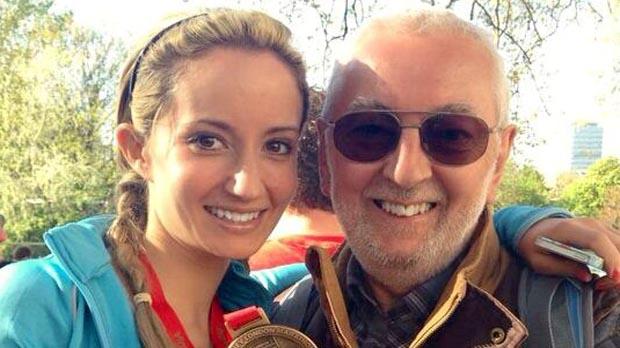
“I think it’s really important that people keep signing up to these type of trials to push research forward.”
Please note - this trial is no longer recruiting patients. We hope to add results when they are available.
This study is looking at whether giving olaparib with chemoradiotherapy makes this treatment work better. It is for people with squamous cell cancer of their head and neck that is locally advanced. This study is supported by Cancer Research UK.
Treatment for locally advanced head and neck cancer is usually a combination of chemotherapy and radiotherapy. This is called chemoradiotherapy or chemoradiation. Some chemotherapy drugs help to make the cells more sensitive to the radiotherapy. The most common drug doctors use is cisplatin. You have it once a week while you are having radiotherapy.
Chemoradiotherapy can work well but sometimes the cancer can come back (recur). So doctors are always looking for better treatments.
Olaparib is a PARP inhibitor. PARP is a protein that helps damaged cells to repair themselves. Olaparib stops PARP working. By blocking it, cancer cells may not be able to repair themselves after chemoradiotherapy and this may make the treatment work better.
The aims of this study are
The following bullet points list the entry conditions for this study. If you are unsure about any of these speak with your doctor or the study team. They will be able to advise you.
You may be able to join this study if all of the following apply. You
You cannot join this study if any of these apply. You
This is a phase 1 study. The doctors need up to 70 people to take part. Everybody will have olaparib and chemoradiotherapy.
Everyone taking part has
There are 2 parts of the study for the olaparib. This means that the first few patients taking part have a low dose of olaparib. Then if they don’t have any serious side effects, the next few patients will have a higher dose. And so on, until they find the best dose. This is called a dose escalation study. In the second part everyone will have the best dose of olaparib found in part 1.
Olaparib is a tablet. You take it twice a day and will start it the week before you start radiotherapy. You might have the tablets for 3, 4 or 5 days in a row. How often you take the tablets will depend on when you join the study.
You will be given a diary card to note down when you take the tablets and any side effects you have.
The researchers may ask for a sample of your cancer (a biopsy) before, during and after your treatment. If you don’t want to give the samples for research, you don’t have to. You can still take part in the study.
They may also ask if you would have an extra MRI scan. Again this is for research and you don’t have to have it. You can still take part in the study.
You will see the doctors and have some tests before you start treatment. The tests include
Before you start your radiotherapy you will need to have 1 or 2 visits to plan your treatment.
You have the radiotherapy treatment once a day Monday to Friday and chemotherapy once a week.
During the first week of treatment you need to give some extra blood samples. These are to see how olaparib works in your body.
Throughout treatment you see the study team regularly and have blood tests.
You see the doctors after you finish your treatment at
And then every 3 months for up to 2 years.
3 weeks after finishing treatment you need to give a couple of extra blood samples for research. At the 3 month visit you have an MRI scan to check how well the treatment has worked.
As this is a new combination of treatments there may be some side effects that are not known. You must tell the study team if you are worried about anything.
The most common side effects of cisplatin are
The most common side effects of radiotherapy to your head and neck are
The most common side effects of olaparib are
We have more information on
Please note: In order to join a trial you will need to discuss it with your doctor, unless otherwise specified.
Dr. Martin Forster
Astra Zeneca
Cancer Research UK
Experimental Cancer Medicine Centre (ECMC)
University College London
This is Cancer Research UK trial number CRUK/D/14/011.
If you have questions about the trial please contact our cancer information nurses
Freephone 0808 800 4040

“I think it’s really important that people keep signing up to these type of trials to push research forward.”